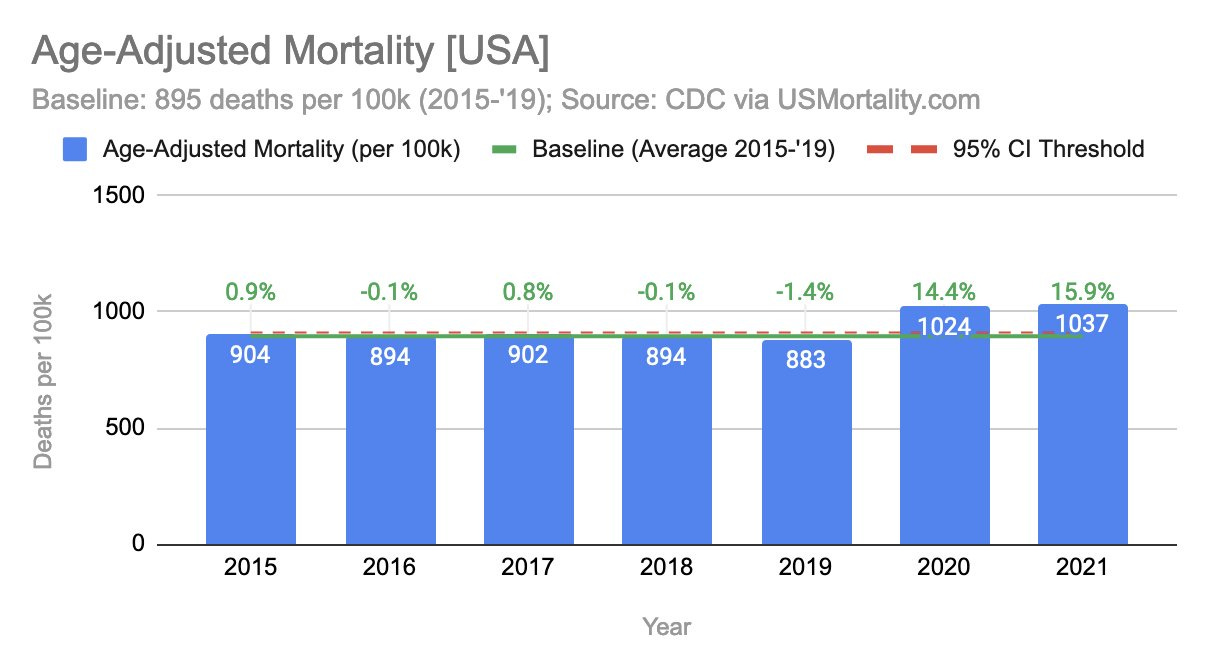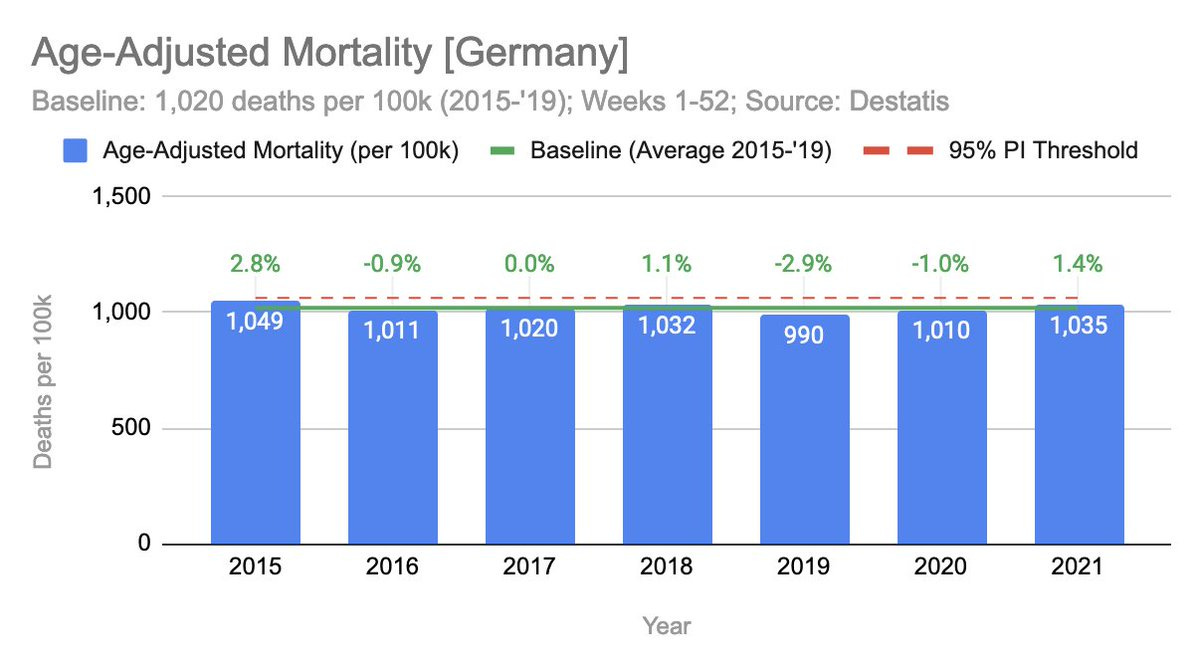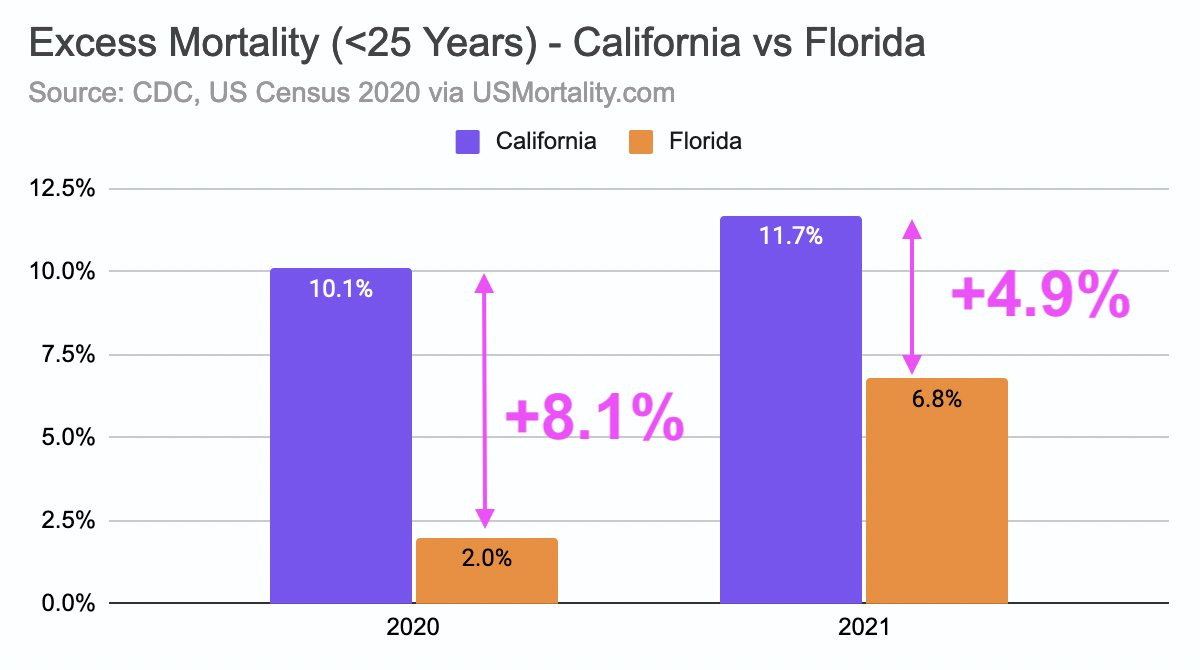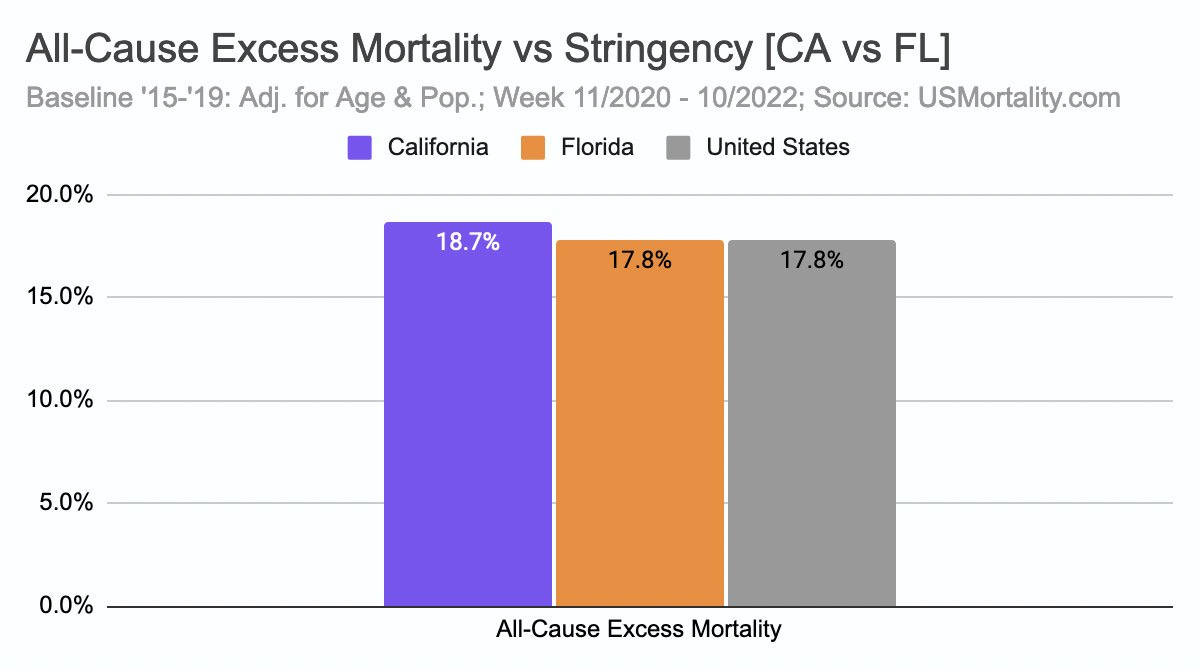COVID Contradictions
1. What's with excess death at younger ages in the U.S.? 2. Local politics is not where you'll find answers to COVID responses. 3. When contrary views make you think COVID is important when it's not.
1. Why so many non-COVID excess deaths in younger cohorts in the United States?
In the United States, there has been a massive increase in mortality during COVID, far beyond what COVID could have possibly caused and occurring broadly across the age distribution.
Some people want to blame COVID vaccines for this. But many countries with extremely high vaccination rates are not seeing excess mortality in younger age groups, despite similar rates of COVID deaths in the elderly.
For example, from Ben (@USMortality) we see the following comparison between the United States and Germany.
One potential explanation is the disruption of normal life. As I explained in my “longevity machine” article, the activities we do every day add up to a lifestyle and economy that creates long-lived humans. Disrupt those activities—the socialisation, the exercise, and the medical treatments—and you get shorter lives.
This could be a small part of the story, but can’t be the whole story. Many highly disrupted and locked down countries haven’t seen much excess mortality in younger (<45yr) cohorts.
For example, Florida is renowned for having only a very brief and limited lockdown, but Florida had nearly 7% excess deaths amongst the youth in 2021, and a rise of 18% overall during the COVID period. Excess deaths overall were just 1.4% in Germany.
2. Local politics is not to blame for the COVID response
Many people seem to blame the extreme COVID policy response of lockdowns, masks, compulsory vaccines and so forth, on local factors or local political personalities. This is a mistake.
(The same mistake is often made when analysing housing markets. You can’t explain a global property re-pricing event with your unique local town planning rules.)
The fact that almost identical responses occurred across a huge variety of political environments and cultures means that what we saw was something operating at a deeper level of human behaviour. To me, the crowd panic explanation makes the most sense.
Mass formation is an idea that became prominent to describe this crowd behaviour. While I agree there are insights from thinking about collective action as a “social mass”, the theory of mass formation relies on psychological ingredients that don’t make sense to me. Here’s a description.
The conditions to set up mass formation psychosis include lack of social connectedness and sensemaking as well as large amounts of latent anxiety and passive aggression. When people are inundated with a narrative that presents a plausible “object of anxiety” and strategy for coping with it, then many individuals group together to battle the object with a collective singlemindedness. This allows people to stop focusing on their own problems, avoiding personal mental anguish. Instead, they focus all their thought and energy on this new object.
Are we really to believe that nearly the whole world, apart from Sweden, has enormous latent anxiety, lack of social connection and passive aggression? From Italy to Chile to Singapore to Japan to China to India to New Zealand and more.
One counterargument to this “it’s not local” view is that Sweden and Florida show what is possible under certain local political conditions. That’s true. But I don’t they escaped the panic entirely. It might be easier to see them as places that progressed through the panic and the crowd behaviour quicker.
3. Not nasty enough to warrant a new type of vaccine, but must take a bunch of other drugs and it’s probably a bioweapon
I see some people slipping towards contradictions when they take the anti-establishment position on COVID by default.
For example, the mainstream view on the origins of COVID was (for a while at least) animal-human spillover from bats. The contrary view was that it was a lab leak, potentially from bioweapons research, suggesting a potentially highly risky and novel virus that needs major action to address.
The mainstream view on the use of existing off-label drugs was that they don’t work. The contrary view is that they do work and that they must be taken; after all, this is a highly risky virus potentially leaked from a bioweapon lab.
These two contrary positions lead to a view that the virus is a big risk and “something” must be done about it. So when we get to vaccines that presents an issue. Because even if the vaccines are not as effective and riskier than thought in the mainstream (the contrary view), they are probably still worth it—after all, the virus is leaked bioweapon and something must be done. If you boost risks on one side of the ledger (danger of virus) it justifies higher risks on the other side (taking an imperfect vaccine).
I’m 100% with Eugyppius on this one. It doesn’t matter where the virus came from. The reality is that it is low risk for the bulk of the population and only a minor risk for the elderly. It should have been treated like a mild respiratory virus from the start, with the data suggesting that vaccines are probably a net benefit for the elderly and that life should have gone on as normal.
If we give in here, and allow Corona to assume the wealth of ambiguous, scary, ominous properties that two years of speculation have lent it, we are very close indeed to accepting that Corona is a problem, and then we have lost.






I've concurred with your final points almost from day one of this debacle. The Barrington people were correct. Nuanced measures to protect the elderly and other at-risk cohorts, while letting everybody else get on with life would've achieved far better outcomes.
Instead, entire societies were crushed and imprisoned regardless of risk, lives disrupted, businesses destroyed and massive debt incurred, while horrible people in big Pharma and elsewhere made huge profits. The estimates of Covid support fraud worldwide are astounding.
In my own case, my brilliant young son wanted to do a PhD in physics, but his studies were so disrupted in first year that he dropped out and now works at a gym. He'll never get that doctorate, and he and the country are poorer for it.
Historians will equate these times to "The Crazy Years" of science fiction writer Robert Heinlein, and they'll be right.